The migrant crisis conjures an image of what people must leave – war, famine, gang violence. And yet, a crisis also often awaits them at their next destination. As liberal democracies face rising populism fuelling anti-immigrant sentiment, there’s ratcheting pressure to tighten border control. The result of this in the U.S., for instance, has been a zero-tolerance policy for undocumented migrants, spurring a steady volume of headlines – family separations, squalid detention conditions, weekend raids in sanctuary cities.
The threats to migrants exist not only at the border, but on the journey there. Óscar Alberto Martínez Ramírez and his daughter are two of hundreds who died attempting to enter the U.S. this year. In June, a photo of the pair was published worldwide: the father and his toddler were found motionless, their drowned bodies still partially in the Rio Grande river during the last leg of their journey from El Salvador to the U.S. The reaction was horror, sadness, an outpouring of sympathy. The photo raises the question: In democratic societies, what’s our moral responsibility to those outside our borders?
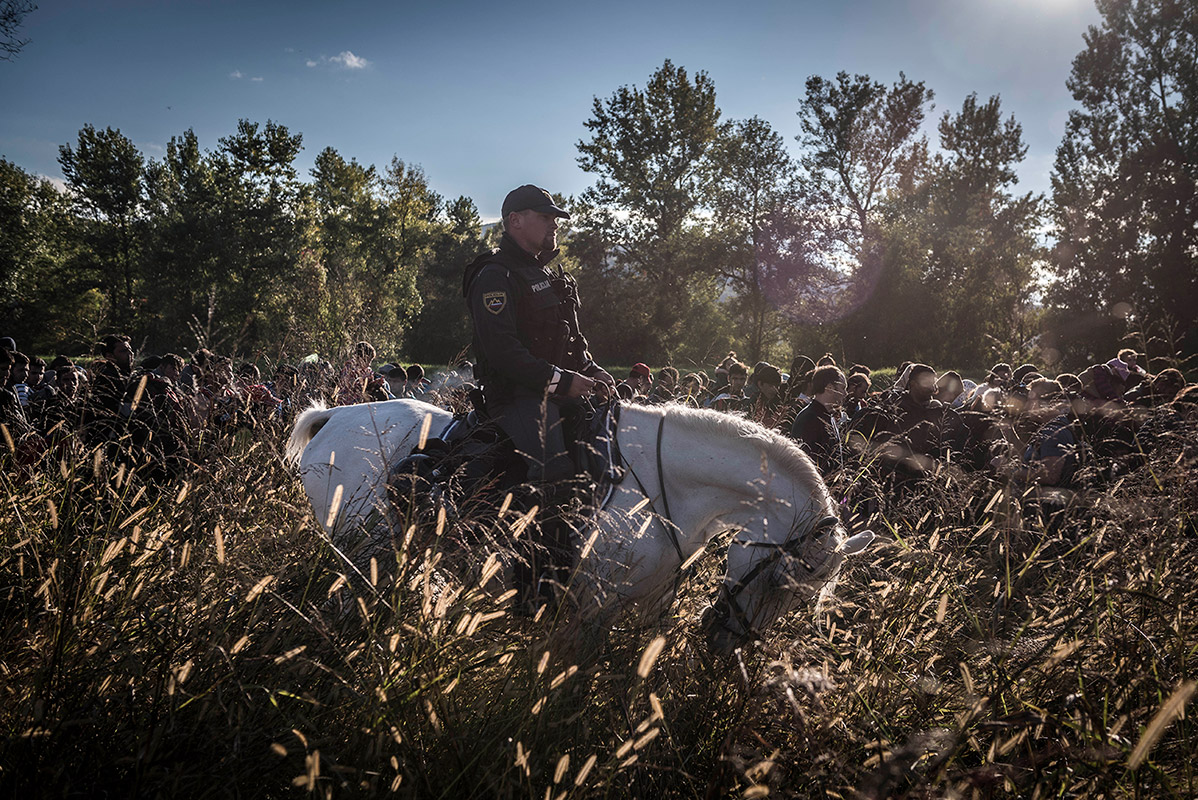
The moral case for open borders
Joseph Carens, a U of T professor of political science, has explored the question of moral responsibility of liberal democratic states in relation to immigration for decades, including in his 2013 book The Ethics of Immigration. He makes the case that Western democracies have a clear responsibility to be open to immigrants and also inclusive of those who have already arrived. For Carens, that includes those who have come to a country undocumented, as he wrote in an essay for the Boston Review: “The moral right of states to apprehend and deport irregular migrants erodes with the passage of time.” And while he recognizes that state sovereignty means countries are entitled to erect borders, he says it doesn’t absolve them of their moral responsibility to migrants.
A system where birthright rules the chances you have in life, in this case the borders in which you were born, is no better than a feudal system, according to Carens. In a feudal system, the vast majority of people exist as peasants. “To be born into a rich state like Canada, the U.S. or the European states is like being born into the nobility,” he says. “The point of the open borders argument is to get people to see that we have organized the world in a way that can’t possibly be justified if you take seriously the idea that every human being ought to count.”
Carens’ argument for open borders is a radical departure from immigration policies seen around the world today, which are overwhelmingly motivated by economics rather than ethics. But he isn’t naive; this is his stance as a political philosopher, not as a policy wonk. He recognizes all immigration policy requires careful political calculation.
In recent history, the political will of one leader to address the refugee crisis stands out. Under Chancellor Angela Merkel, Germany opened its borders to nearly one million migrants in 2015. But that move fuelled the rise of a far-right party, the Alternative for Germany (AfD). The AfD was launched as an anti-European Union party in 2013 but shifted strategy after 2015, moving further right and campaigning on an explicitly anti-immigrant, anti-Islam agenda in the federal elections in 2017. It managed to garner mainstream support, becoming the third-largest party in Germany’s Bundestag.
Carens casts this reaction as an example of opening the door too wide, too suddenly. “If you try to do too much, the result can be counterproductive,” he says, adding that this type of reaction will likely negatively affect existing and future immigrants. “Political actors always have a responsibility to assess consequences.”
Criminalizing migrants
On the other end of opening the door too widely is the trend toward criminalizing irregular migration. In May, Immigration and Customs Enforcement in the U.S. had 52,000 people in detention, reported as an all-time high. Toward the end of the President Barack Obama era, that number was more than 34,000. That growth is related to the insistence of President Donald Trump’s administration that entering the U.S. undocumented is a crime. In reality, while it may be against the law to enter a country without formal permission, Carens says that doesn’t have to be a crime – it could just be seen as a civil violation.
This increased propensity toward criminalization leading to detention represents a shift in view, says Carens, from seeing undocumented migration as a civil offense, such as a traffic violation, to a criminal offense. Detaining migrants conflates the offense they’re committing – being in a country without permission – with a far more dangerous one. “You shouldn’t lock people up unless they pose a threat to society,” he says. “Just because they’re there without permission, doesn’t make them a threat.”
This criminalization is the result of migrants being perceived as a threat. Trump, for instance, campaigned on the myth of migrants as criminals. While this is a claim that has been debunked repeatedly, it’s certainly not new. A large-scale study looking at data over 40 years in the U.S., for instance, showed that increased immigration levels were consistently negatively correlated with violent crime, such as murder, and property crime. U of T Scarborough professor Donna Gabaccia – an historian of international migration – traces the belief that foreigners are potential criminals back to the 19th century in Canada, the U.S. and Australia. It’s a powerful narrative, she says. What she finds particularly disturbing is how asylum-seekers are being criminalized in these countries: “Under international law and under American practice, they have the right to seek asylum and yet, increasingly, they are being discussed as illegals who have committed a crime by crossing the border.”
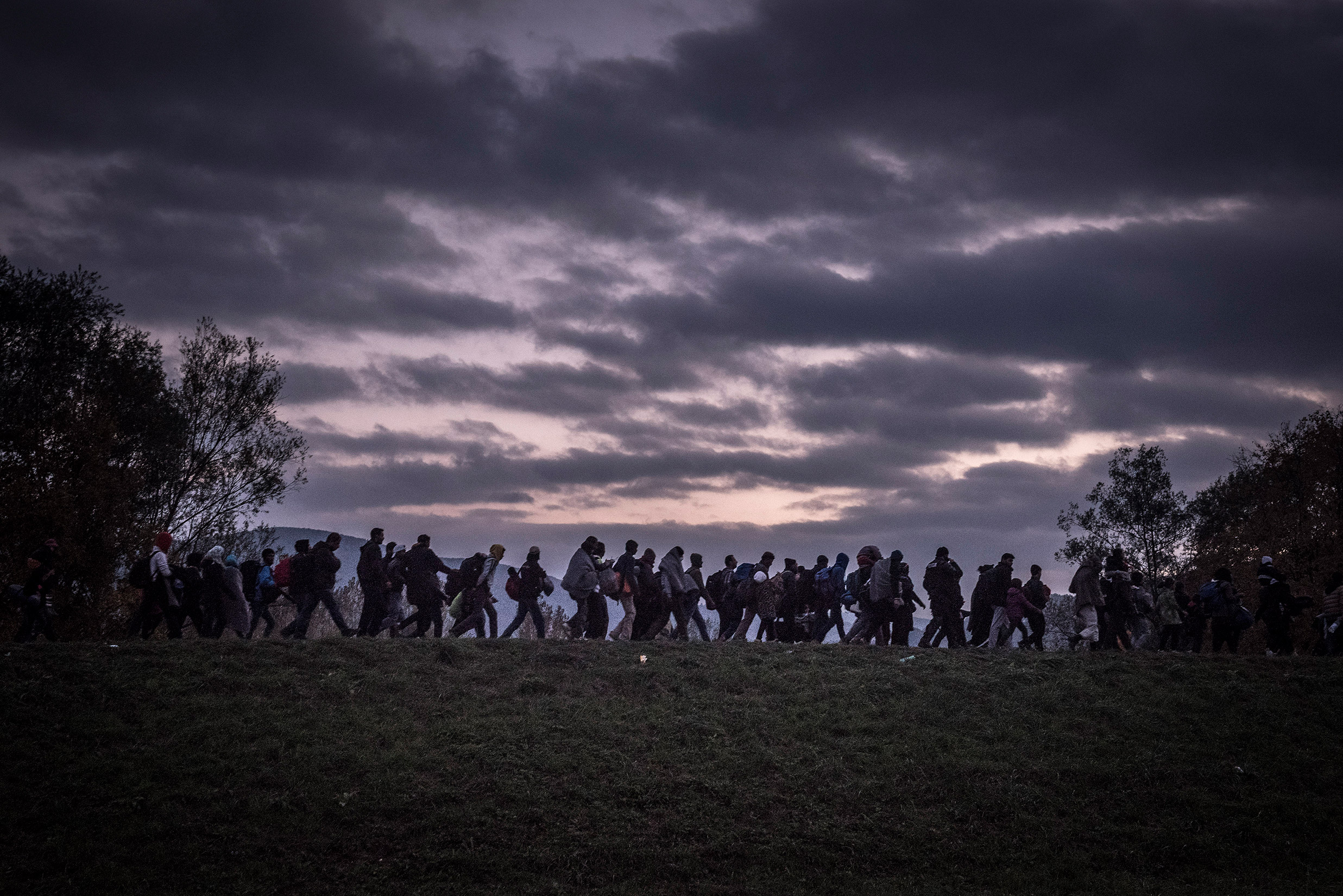
Is it fair to let people “jump the queue”?
Another common argument against undocumented migrants is that they have not followed the rules like everyone else. That leads to two criticisms: that they are jumping the queue, and that rewarding them will incentivize more people to do the same.
Carens returns to a tenet of his original argument: that migrants should respect laws of a state related to migration presupposes that the way the international order is set up is just. But setting that aside to deal with the legal and political realities of the day, Carens says the first criticism about rule-breaking comes down to a moral judgment on the character of an individual. And that most people, when faced with an actual undocumented person with deep ties to their community, can see that breaking a rule doesn’t make that person morally defective.
The second criticism, that it incentivizes more people to cross borders undocumented, is trickier to untangle because while it’s clear that it does encourage others to do the same, it’s hard to parse out the exact impact of undocumented migrants. “Part of the problem here is that those who are already sympathetic to immigrants are going to say there are no consequences and those who are hostile to them are going to say there are devastating consequences,” says Carens. “It’s very hard to get actual empirical information that isn’t tainted by these [perspectives].”
But what Carens encourages people to consider are the negative consequences of deportation for those in the community where an undocumented person has deep ties. Deporting people has “devastating consequences” for those who care for them.
The reality is, some migrants simply don’t have a legitimate path to citizenship in many countries. Emily Gilbert, a U of T professor of geography, says while there’s an assumption that borders are more open than ever before, the reality is that while most tourists and those travelling for business move freely, there are many others who have difficulty crossing borders. This is the case even in Canada, which is perceived to be much more open than many other countries that have no path to naturalization. The Canadian system favours high-skilled workers, offering few opportunities for so-called low-skilled workers to become citizens. In her view, the people who the rules are built to advantage are the ones who get to jump ahead in line.
This shift away from permanent immigrants toward temporary migrants in jobs such as agriculture creates exactly the situation the U.S. is facing now, adds Gabaccia, in which a subsection of the population is politically alienated without access to the full rights of citizenship. As a temporary foreign worker in the U.S., for instance, there is no maximum time you can have authorization to work in a country. That means a migrant can be working, paying taxes and deepening ties in a community without access to certain benefits or the right to vote. “Countries [without] the opportunities for permanent residency and naturalization cannot call themselves democracies because they have privileged some people by reason of birth and citizenship and excluded everyone else,” says Gabaccia.
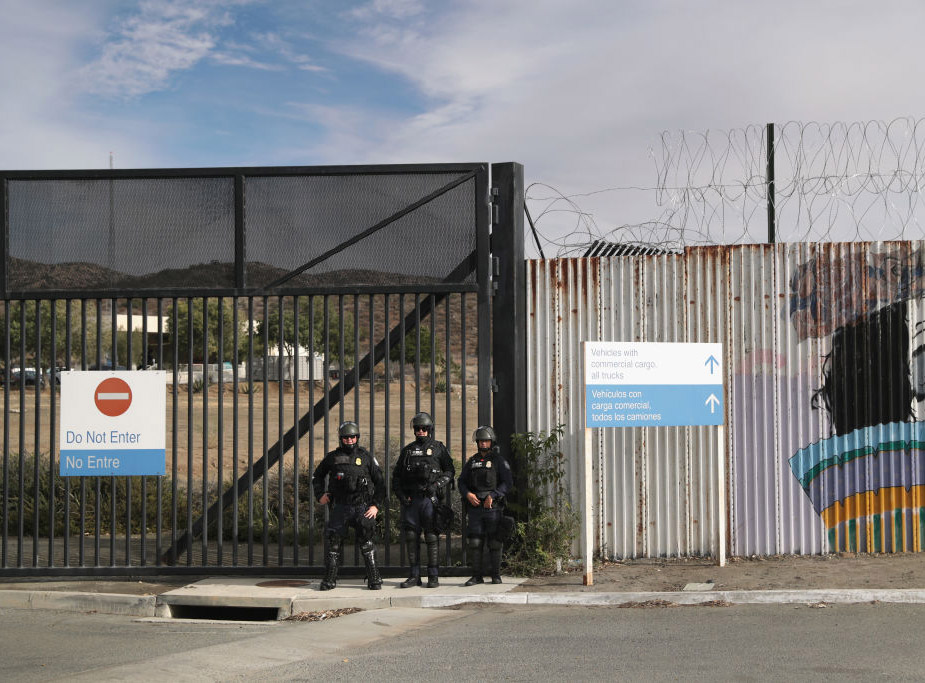
Earning citizenship
While the question of who deserves citizenship is a complicated one, Carens has a guiding principle that makes it quite simple: the passage of time earns people a right to stay. If someone has been in a community for 10 or 15 years, they have put down roots whether or not they have official status, argues Carens. And if someone came to a country as a child, there’s an even more compelling argument that they should be able to stay.
Carens uses the example of Marguerite Grimmond, an 80-year-old woman who was told she had to leave the U.K. after living there the majority of her life. She came to Scotland as a child from the U.S., and when coming back from her first trip abroad to Australia (she was using an American passport), immigration officials told her she would have to leave within four weeks. “The moral absurdity of forcing her to leave a place where she had lived so long was evident, whatever the legal technicalities,” wrote Carens in the Boston Review. After the media picked up her story, Grimmond was permitted to stay.
And there’s another reason this story in particular is powerful for many readers, says Carens: Grimmond is an elderly white woman who wasn’t seen as a threat. For him, it strips the migration debate of the racial and cultural biases that affect public opinion and policy, although they are rarely officially acknowledged.
The recent Windrush scandal in the U.K. revealed different attitudes driving policy, where longtime legal residents from Caribbean colonies were threatened with deportation decades after their arrival. People from Caribbean colonies were invited to Britain to help rebuild after the Second World War, and, being part of the colonies, they had a legal right to citizenship. But under the government’s “hostile environment” policy introduced in 2012, those legal residents were being threatened with deportation. In a parliamentary committee addressing the scandal, Anthony Bryan, who was detained and threatened with deportation, said: “I don’t think I’d have this problem [if] I had come from Canada instead of coming from Jamaica.” His wife put it more bluntly: “[It was] because of the colour of your skin.”
For Carens, that’s why the passage of time is the best way to determine right to stay, rather than measuring integration in some way, which he says “is inevitably tied up with notions of race, religion, ethnicity, culture that are deeply, deeply problematic.”
The narrative of a threatened culture is certainly not new, says Gabaccia, and is particularly concerning her right now as she sees parallels to the rise of fascism. “It’s very demoralizing for someone of my age who’d never expected to see this, but it tells us just how ubiquitous this fear of the stranger is,” says Gabaccia. “It rises and falls, but it never disappears.”
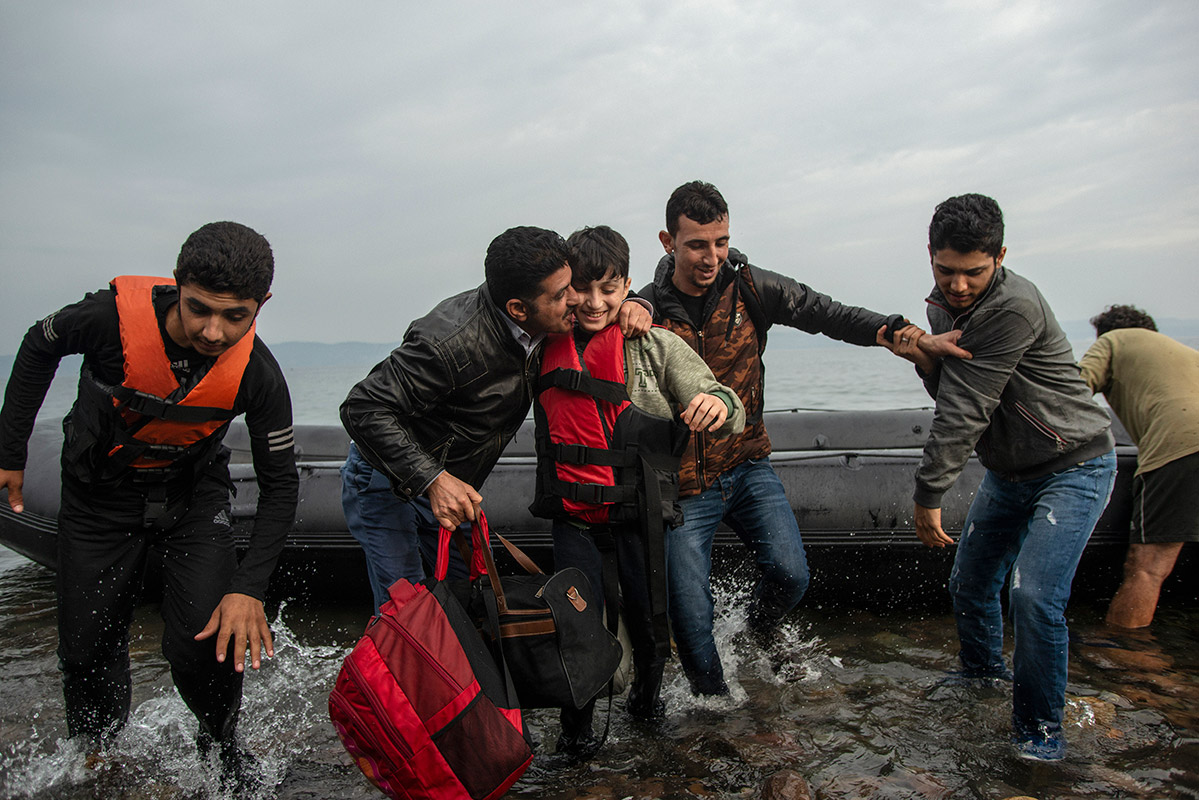
The Political Realities of Open Borders
While the liberal perspective that there is a moral responsibility to those outside a nation’s borders may be admirable, what’s missing is the reality that the primary responsibility of elected political leaders is to voters inside their borders, says U of T prof. Phil Triadafilopoulos.
“The limits to open borders are partly a function of democracy,” says Triadafilopoulos, an associate professor of political science.
In a democracy, political leaders are accountable to those who elected them, he says, limiting their discretion over border policy to the confines of the mandate they were elected on. And an open borders policy is not exactly a formula for political success. The opposition to taking in more immigrants is often framed as a capacity issue – that countries can’t absorb every potential immigrant who may want to settle there. And even though evidence suggests otherwise – Triadafilopoulos uses the example of Turkey, which has absorbed more than two million migrants from the Syrian conflict – that doesn’t give license for democratic leaders to overrule the will of the people who elect them.
“If you believe in democracy and that the people should have some say in fundamental decisions, which might include who constitutes the polity, then it’s not enough to argue, ‘Well, the people are misinformed or the people don’t know what they’re talking about,’” says Triadafilopoulos.
The democratic imperative leads to immigration policy being framed in the self-interest of a nation, such as inviting immigrants to fill labour-market gaps and combat declining birthrates, rather than fulfilling a moral responsibility. “When managed migration schemes can be seen to deliver, then democratic publics aren’t necessarily totally averse to immigration,” he says.


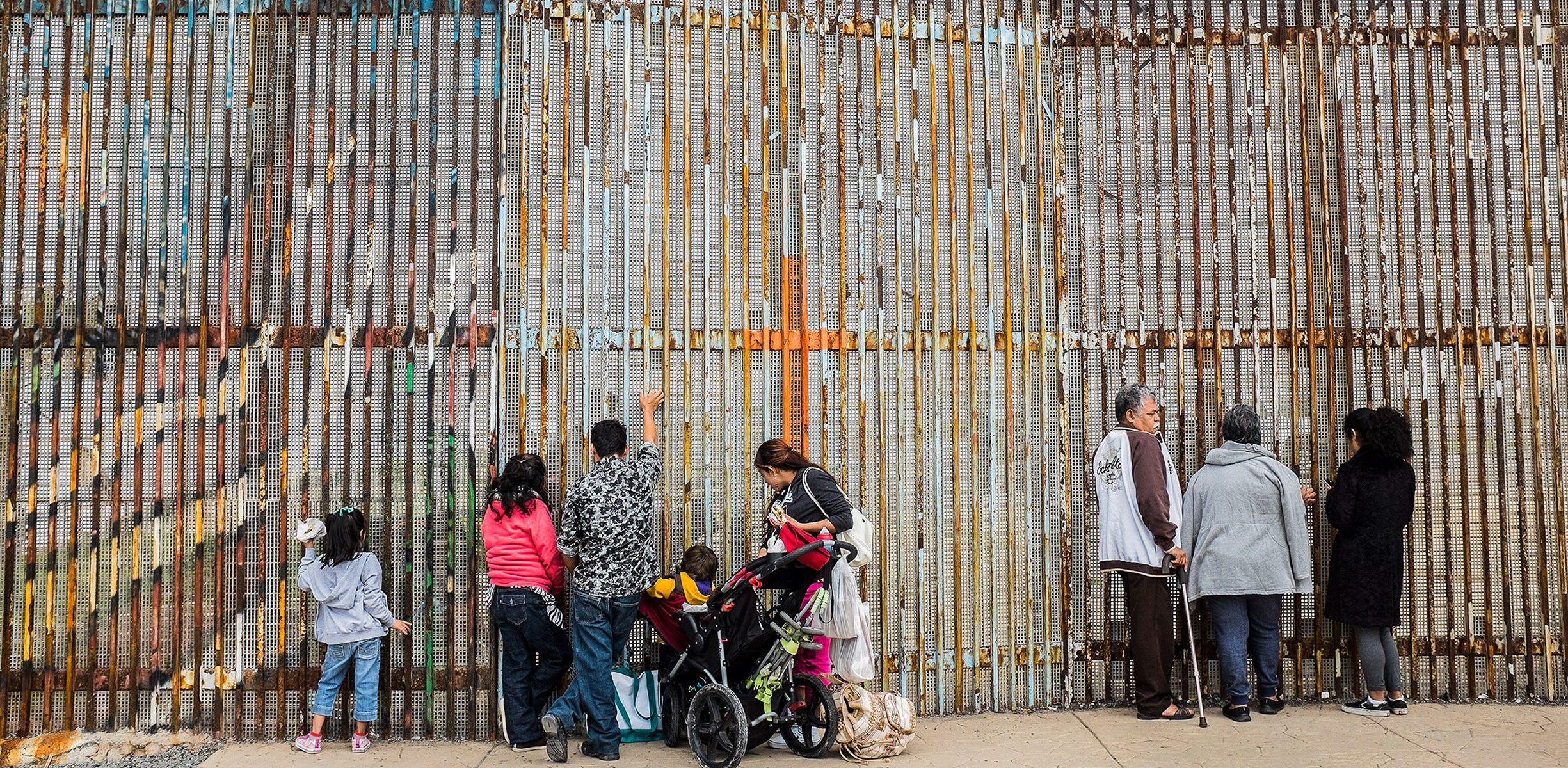

15 Responses to “ What Do Borders Really Do? ”
Very well written. A question for me that is soft pedalled in this article is: how do countries balance democracy in terms of the will of the people when that will becomes a dictatorship of the majority, like Germany under Hitler? How do nations prevent refugees from becoming scapegoats?
Open borders for Canada? No way.
Many of the countries from which migrants flow to the U.S. and Canada have very strict immigration policies with very harsh punishments. The solution is to change your home country from within. Stay and fight for yourself and your countrymen as so many have done, rather than abandoning them in their hour of need.
So many boxes in which to put an immigrant depending on the needs of a country. Forget "immigrant." We should define them as human beings in need of a place to live.
The arguments are based on the idea of collective morality. Actually, because everyone has sovereignty over themselves, they may choose their own morality. Therefore, the proposition that borders should be open should be determined by a referendum. The article omits the idea of a country. It is a part of the Earth claimed by a group of people as theirs. The whole world is now so divided, with about 195 countries claiming sovereignty over their territory. If the claim has meaning it implies that the citizens of a country have the right of approval over any person wanting to enter the country for any reason. People who sneak into the country violate this right. Every country has laws and procedures to deal with people who try to enter their country. Those who violate the laws or procedures can rightfully be prosecuted.
From Maureen Hay (BA 1973 St. Michael's)
Migrations have occurred for various reasons, such as famine and drought, but countries that do not have borders do not survive. The U.S. and Canada must have borders for reasons of national and economic security.
We should remember that Canada's health care, education, pension, and social programs have all been made available within secure borders.
Israel also survives because of secure borders.
Having a country with secure borders is required for self-government to have any meaning. The author and other open-borders advocates completely take for granted why some countries are successful in the first instance. These advocates are modern versions of communists and anarchists. There is nothing moral about open borders.
Open borders are incompatible with a welfare state. Pick one - or neither preferably.
For all those who favour open borders, I have a question: do you have locks on your doors? If so, why? If you feel that caring for illegal immigrants is the moral high ground, then open your house to them and sustain them using your personal resources. You have no right to force me or the government to squander money on those who sneak into my home.
The only way you can impact the world is to open gates that close people out.
From John Friend (BASc 1979)
Prof. Joseph Carens says that regardless of state sovereignty, countries have a "moral responsibility to migrants." He compares the current system of national borders to the feudal system, noting that "to be born into a rich state like Canada, the U.S. or the European states is like being born into the nobility."
May I suggest that it is actually highly immoral for rich states to open their borders to immigrants, thereby poaching developing countries of their most educated, most ambitious and sometimes wealthiest people, so that rich states can fuel their own prosperity. Who better to raise the GDP, living standards, health and education of a poor country's populace than it's own educated citizenry?
Make no mistake, the foundation of immigration has always been for the benefit of the host nation. Even the acceptance of relatively poor immigrants is fundamentally to benefit the host nation. We see that in Canada, which offers jobs to immigrants that Canadians are reluctant to do, and where so much of our economy depends on housing and filling those homes with consumer goods, educating, policing, and providing all manner of consumer services to an ever-increasing population.
Immigration is simply another form of predatory capitalism that is exercised at the state level.
Building a country is a national project. To open the door to anyone, anytime, no matter what they believe, undermines that project. Sovereignty, policing, economics, education and identity all require national cohesion, and this requires borders. We need immigration, but YES that immigration should be based primarily on the needs of the society that is accepting immigrants, and not based on some abstract have/have-not morality. If Canada has no borders then we are defined by the borders of others. If Canada has no borders, Canada ceases to exist. A house has walls, a river has banks.
Open borders and criminalizing illegal migrants are not two ends of a spectrum. Open borders means Canada does not get to decide who lives in Canada. Anyone can walk in. Making our border secure means we can protect Canadian values, like supporting the equality of women and gays, and the separation of church and state -- ideas that billions of people on this planet do not share with us. We must retain the power to decide for ourselves who we allow into our house, and not let intransigent, neo-puritanical morals dictate that our opinions are “racist” because we prioritize the wants and needs of Canadians over the wants and needs of millions of non-Canadians.
I am bemused at the tone of some of the comments: rightful indignation at open borders, closed borders, what-have-you.
We are all immigrants in Canada. The people to whom this country belongs by moral right are the many "Native Peoples," whom we, the immigrants persisted over a long period in calling "Indians." These are the people who ought to be deciding where any borders should be.
Very well written and interesting to read.
A thought-provoking and well-written article. What especially resonated for me was the idea that someone entering a country without proper documentation should be treated as a civil violation, not a criminal one -- unless the person has actually committed a crime. I also agree with the right to citizenship for anyone who has stayed more than 10 or 15 years in a community, independent of the way they entered the country.